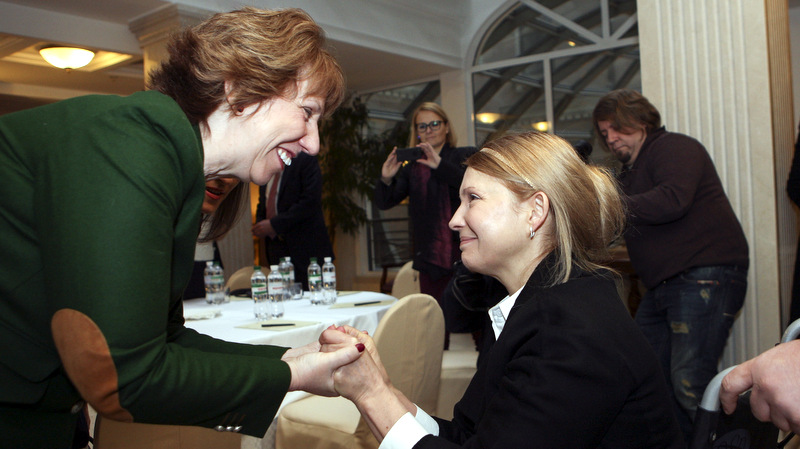
Ukraine’s internal political structure changed dramatically last week. The release of former Prime Minister Yulia Tymoshenko, the announcement of early presidential elections and the impeachment of Ukrainian President Viktor Yanukovych have forced Ukraine to search for stability in wildly shifting sands.
Difficulties in forming a new majority coalition in the Verkhovna Rada and looming economic disaster have led interim President Olexandr Turchynov and the remainder of the government’s leadership to delay the naming of an interim prime minister and a new government until Thursday.
With three primary political parties and as many as four minor parties holding seats in the Verkhovna Rada, as well as a host of outside groups and civic activists representing the constituencies of the Euromaidan, finding common ground has proven difficult.
All of this has been further complicated by a rise in rhetoric from Moscow. Russian Prime Minister Dmitry Medvedev has stated that the interim authorities in Ukraine conducted an “armed mutiny” and that dissenters in Ukraine’s Russian-speaking regions face suppression.
“The legitimacy of a whole number of organs of power that function there raises great doubts,” he said. “Some of our foreign, Western partners think otherwise. This is some kind of aberration of perception when people call legitimate what is essentially the result of an armed mutiny.
“We do not understand what is going on there. There is a real threat to our interests and to the lives of our citizens,” the Russian prime minister added.
The defeat of the Yanukovych administration endangers Russian President Vladimir Putin’s dreams of assembling a trade association among the former Soviet republics that could rival the European Union. The Euromaidan began as a protest against Yanukovych’s refusal to sign a trade agreement with the European Union after Moscow threatened economic sanctions against Ukraine if it signed the agreement.
The protection of Russian citizens was used as a pretext for armed intervention in Georgia in 2008, which is how Russia came to control two of Georgia’s provinces, South Ossetia and Abkhazia.
In Washington, the Obama administration has indicated that the United States is prepared to send financial aid to the Ukrainian interim government under a loan program being administered through the International Monetary Fund.
“The United States, working with partners around the world, stands ready to provide support for Ukraine as it takes the reforms it needs to, to get back to economic stability,” White House spokesman Jay Carney told reporters on Monday.
Despite Russia’s refusal to recognize the interim government, the United States has acknowledged the legitimacy of the new leadership.
Ukraine is reportedly seeking $35 billion to prevent the collapse of the government, including approximately $6 billion in debt payments.
“Against the background of global economic recovery, the Ukrainian economy is heading into the abyss and is in a pre-default state,” said acting President Turchynov. “The task of the new government is to stop the country’s slide into the abyss, to stabilize the exchange rate, guarantee the timely payment of salaries, pensions and stipends, and to regain the confidence of investors, promote the development of enterprises and the creation of new jobs.”
Presidential elections are scheduled for May 25.

